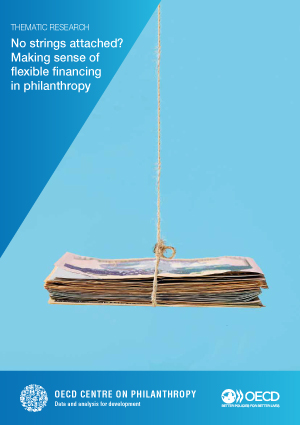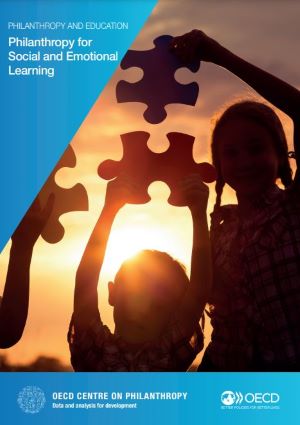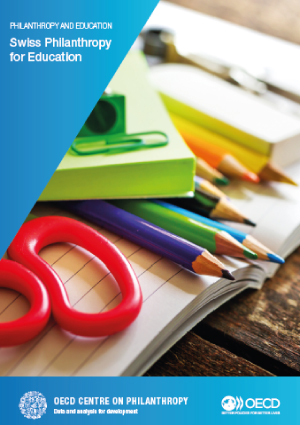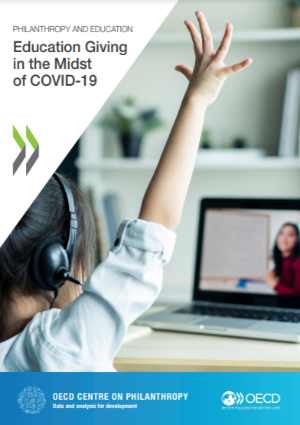Thematic studies
Philanthropy is at the forefront of financing innovative approaches to social challenges. The OECD Centre on Philanthropy is conducting reviews of initiatives financed by philanthropy in multiple areas to find best practices and lessons that other donors, governments and the private sector can put in practice.
No strings attached? Making sense of flexible financing in philanthropy
When, why and to which grantees do private donors provide flexible general support grants?
Are philanthropic donors shifting from giving earmarked support for specific projects to providing unrestricted general support grants? This paper critically looks at philanthropic financing to establish which donors are making the shift, which are not, and what explains the differences.
Based on the OECD database on Private Philanthropy for Development 2016-19, with over 180 private philanthropic donors from 32 countries, and historical yearly giving from 20 large international foundations between 1982 and 2022, the paper estimates the likelihood of flexible giving according to grantee characteristics such as geographical location, sector of operation and the type of organisation receiving the funding through a Bayesian statistical analysis.
Flexible financing is found to represent around 16% of all philanthropic donations, or 19% of all funding between 2016 and 2019. More recently, a few large US-based foundations have shifted towards more flexible giving, but most continue to operate through earmarked funding. There is large variability across time and philanthropic donors, ranging from those that do not provide any flexible financing to those that devote most of their funding to general support.
Philanthropy for Social and Emotional Learning
Philanthropy supports a wide range of programmes globally that aim to give students skills beyond academic performance.
This report details the findings of a global survey on philanthropy-funded initiatives that aim to develop and improve these skills. The survey included 35 programmes financed by 15 philanthropic foundations and implemented all over the world –with Colombia, Tanzania, and the United States emerging as focal points.
While studies show positive impacts of social and emotional learning (SEL) programmes, effects tend to be smaller than previously estimated, as measurement and implementation challenges persist.
The analysis offers recommendations to improve the impact of SEL interventions, highlighting the need for collaborative efforts between donors, implementers, and evaluators.
Swiss Philanthropy for Education
What do Swiss philanthropic donors finance in education?
This note delves into 19 large Swiss foundations’ support for education, gathering quantitative and qualitative data on programmes deployed in both developing and developed countries.
The report provides insights into the educational objectives and geographies they support, how they collaborate with other funders, how they engagement in advocacy, and how they approach learning from their grantees and projects.
Data on Swiss official development assistance (ODA) for education complements the analysis, allowing to identify common geographical and thematic priorities.
Education Philanthropy in the Midst of COVID-19
The report highlights how education donors adapted to the COVID-19 pandemic in the short-term.
The pandemic intensified demands from education stakeholders due to lockdowns and school closures.
Philanthropic donors responded swiftly, reallocating resources to emergent needs and, sometimes, redefining their mid- and long-term strategies.
Yet, limited data availability has hindered their potential to support educational responses to the pandemic.
This research maps national educational priorities in low- and middle-income countries, offering insights for foundations active in this sector and highlight opportunities for foundations active in the education space.





